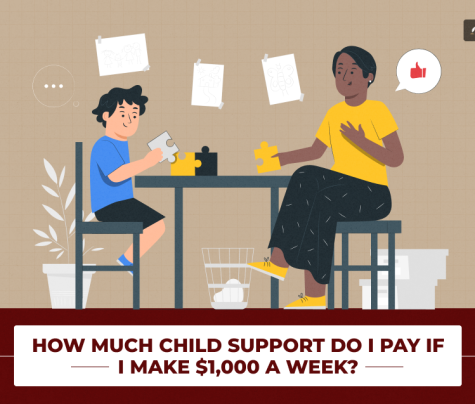If you have been trying to understand the process and legality of marriage annulment in New Jersey, then you have come to the right place!
Society considers marriage to be the creation of a family, which is the basic unit of the community. Marriages are intended to last forever, but life doesn’t always work out as expected.
As such, you may be considering ending your marriage because of one reason or another. In New Jersey, there are two ways to officially sever your union: through a divorce or an annulment.
What is Marriage Annulment?
If I have to put it simply, an annulment is basically the cancellation of a marriage as if it was never valid and took place. And this is a legal procedure that takes place in the court of law. A divorce, on the other hand, is the dissolution of a recognized marriage.
Thus, we can further elaborate that annulment is a legal procedure that operates under legal principles in which a court would essentially render a marriage nonexistent.
A marriage is subject to nullity for matters that breach certain legal requirements prevailing at that time.
Illustratively, if either of the parties was still married at the time of the new marriage. Or if one party was below the legal age at the time of marriage or if there was deceit/force prevalent during the marriage.
Since an annulment means that the authorities did not legally perform the marriage, these annulments will have fewer financial effects like a divorce, such as no alimony or distribution of property gained during the marriage.
Understanding Marriage Annulment in New Jersey
Marriage annulments in New Jersey are special in the sense that they have their own legal grounds and consequences, which the law defines.
Annulments are a different legal concept than divorce. They will lead to the marriage being legally invalid, and it will be considered and treated as if it never had existed in the first place.
This leads to the need to identify particular circumstances, knowing that they took place at the moment of the marriage, so as to institute a proper defense for the annulment.
When it comes to marriage annulment in New Jersey, the grounds for annulment are as follows:
- Fraud or Misrepresentation: One spouse was not truthful, for instance, hiding that they were married to another person, or their infertility may help for annulment to occur.
- Duress or Coercion: The court can nullify a marriage if someone forced or threatened one of the parties to marry.
- Incapacity to Consent: Think of being drunk, having a mental illness, or being high on drugs and then getting married. This happens at the time of marriage.
- Bigamy: It is a crime and is void ab initio to enter into a marriage while you are already married to another person.
- Underage Marriage: If either party to the marriage is under 18 years and obtains parental consent or court permission, the authorities should treat it as void.
The courts are only interested in seeing evidence. Depending on these, they will decide whether they will nullify a marriage or not. This is the reason why proof of burden is so very important!
Fraud and intent are of particular relevance in New Jersey, unlike in the rest of the States; New Jersey is uniform in regard to annulments and fairness.
What Is the Difference Between an Annulment and a Divorce?
A divorce is more commonly the end of a marriage in New Jersey. A divorce ends your marriage so that you become a divorcee who may remarry.
An annulment, on the other hand, is far more difficult to obtain since it can actually invalidate a marriage.
An annulment is usually retroactive. When the court annuls a marriage, we can consider it invalid from the moment of inception, as if it never happened.
Are you considering annulling a marriage? New Jersey rarely grants annulment because of the higher burden of proof required.
However, it does serve marriages that qualify on a limited basis. This is why you should first be sure your marriage qualifies for annulment before kick-starting the process.
Grounds for Annulment in New Jersey
“Spouses looking to get their marriages annulled must first prove to the court that the union was never valid in the first place,” says Connecticut Family lawyer Galit Moskowitz
The most common grounds for annulment in New Jersey is fraud. In such a case, either spouse entered into the union under duress or fraud. Here are other grounds you should be aware of:
- Whether either spouse was underage when married
- If either spouse was under intoxication while consenting to the marriage
- If either spouse had a mental disability that prevented them from consenting to the marriage
- Either spouse entered into the union as a joke or a prank
- Mental incapacity, bigamy, incest, and more
Most people wonder whether infidelity is grounds for annulment in the Garden State. Unfortunately, it is not. If you want to end your marriage because your partner has broken your vows, divorce is the better alternative.
Understanding the Difference Between Void and Voidable Marriages
There are two situations when a marriage can be annulled in New Jersey:
Void marriage
This union should not have existed in the first place. This happens in cases like when either spouse was under intoxication or mentally unwell when consenting to the union.
Voidable marriage
Even though this marriage was legitimate at the time of the union, either party can challenge the marriage’s legitimacy after new information comes to light or new events occur.
You may find that your partner was already married to someone else at the time of your union.
Additionally, you can file for annulment in New Jersey without being married for a set time. You only need to provide sufficient proof to meet the grounds for annulment listed above.
Wrapping It Up!
Annulments are far more difficult to obtain than divorces. If you’re considering this path to void your marriage as if it never existed, you must talk to a qualified divorce lawyer.
The lawyer will analyze the facts and your reasons for annulment to help you understand whether you qualify.
I hope this blog has been of help to you if you were searching about marriage annulment in New Jersey. If there are any other queries related to the same, please feel free to let me know in the comments below.
LEARN MORE:
- Civil Union Vs Marriage – A Best Guide Of 2025
- Everything To Know About Marriage Lawyers Right Now!
- 7 Scenarios You Need A Divorce Lawyer For Your Broken Marriage











0 Reply
No comments yet.